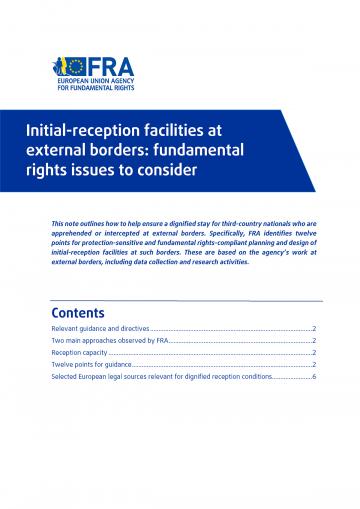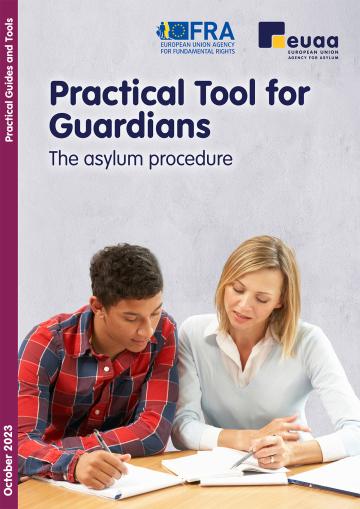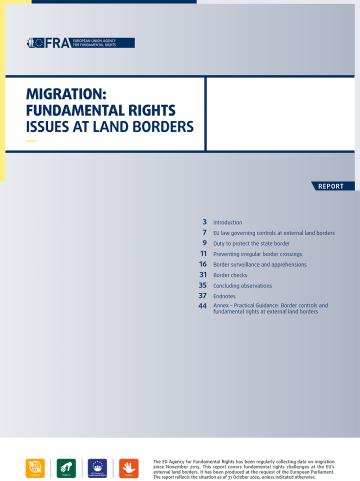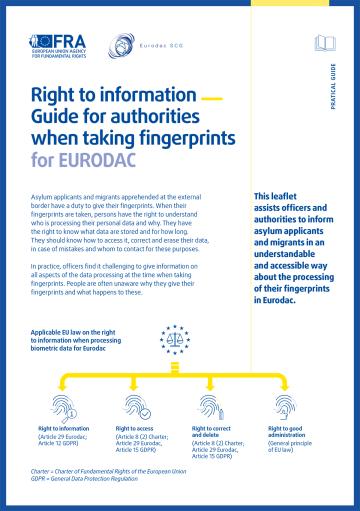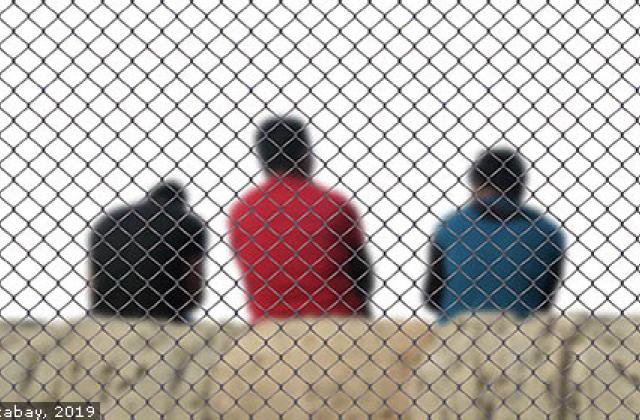Relevant guidance and directives
For asylum applicants, the EASO guidance on reception conditions outlines how to apply the reception standards laid down in Directive 2013/33/EU for such individuals. The treatment of people in return procedures must comply with the Return Directive (2008/115/EC). The CPT standards guide the planning and design of immigration detention facilities.
Two main approaches observed by FRA
During FRA’s visits to Greece, Hungary, Italy and Spain, the agency observed two different approaches to hosting new arrivals at external borders. These observations do not include police facilities that host apprehended or intercepted third-country nationals for just a few hours.
The first approach consists of hosting arrivals in initial-reception facilities, where they stay for the short time needed to carry out their first registration and identification. The arrivals are moved from such facilities to other reception facilities within a matter of days.
The second approach consists of hosting new arrivals in reception facilities at borders, including during the asylum and/or return procedure or parts thereof. In this case, their stay can last for many months.
In its 2019 update of the FRA Opinion on fundamental rights in the hotspots, FRA recalled that the prolonged stay of asylum applicants at relatively remote border locations led to almost insurmountable fundamental rights challenges. These included undignified reception conditions that caused suffering among the asylum applicants and frictions with the local population. In general, the longer the stay in such centres, the more difficult it becomes to uphold dignified reception conditions set out in EU law.
Reception capacity
FRA’s observations also underscored that the available reception capacity largely determines reception conditions. Whether facilities are large or small, overcrowding is a key hurdle to dignified stays.
